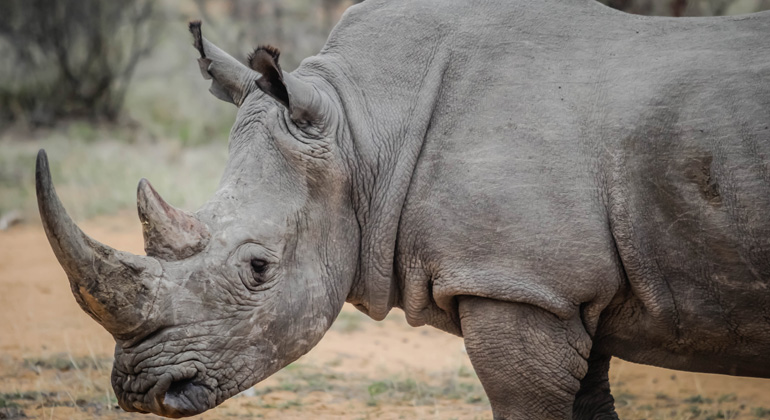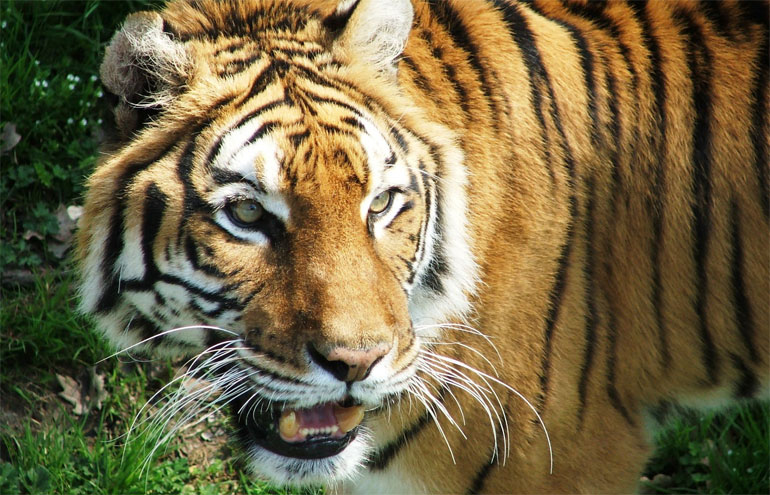Global wildlife meeting ends with stronger protection for some species
CITES CoP18 closed in Geneva, with significant implications for the future of thousands of animal and plant species around the world.
- Hawksbill turtles, sea cucumbers, tokay geckos, and Asian big cats among the big winners at CITES CoP18.
- Parties vote to maintain the existing international ban on elephant ivory trade, but fail to strengthen country-specific actions to tackle ivory trafficking.
- Parties also fail to sufficiently address wildlife trafficking and consumption in Vietnam and neighbouring countries
The 18th Conference of the Parties to the Convention on International Trade in Endangered Species of Wild Fauna and Flora (CITES CoP18) closes today in Geneva, with significant implications for the future of thousands of animal and plant species around the world. Representatives of 170 countries and numerous conservation and industry organizations discussed an unprecedented number of proposals related to sustainable trade of wildlife globally, with some species emerging as clear winners.
Among these were hawksbill and other marine turtles. In an unexpected but much needed move, governments adopted strong decisions to help tackle the illegal trade of marine turtles and halt their rapid decline. It will now be vital for range, transit and consumer countries to work together to implement these decisions and adequately protect these far-ranging species.
“Marine turtle conservation has received encouraging news from CITES but governments must implement these decisions swiftly and effectively for it to turn the tide for these species. As technology facilitates DNA sampling, species monitoring and oversight of fishing impacts, we must seize these opportunities to secure a future for these ancient mariners who have roamed our oceans for over 100 million years but are in steep decline today,” said Colman O’Criodain, Policy Manager, WWF Wildlife Practice.
An array of other species also now have a chance of a brighter future given important decisions made at the meeting.
Three species of sea cucumbers – under severe decline due to their popularity in luxury cuisine markets in Southeast Asia – received trade protections for the first time, as did tokay geckos, mako sharks, and various timber species including Mulanje cedar, Mukula, and Spanish cedar. Trade was banned altogether for several reptiles threatened by the exotic pet industry, including pancake tortoises from East Africa and Southeast Asian box turtles and protections were increased for two spectacular bird species – the black-crowned crane from the savannas of Africa and the helmeted hornbill from the rainforests of Southeast Asia. There was also overwhelming support to more robustly tackle the trade of several big cats, including leopards, jaguars and tigers – including improved scrutiny and reporting on breeding facilities like tiger farms, which are of serious concern for their potential contribution to illegal trade and poaching of tigers in the wild.
And in an important but somewhat less visible decision, Parties adopted a resolution to strengthen cooperation between CITES and the World Heritage Convention, promising to better unite efforts to tackle unsustainable wildlife trade and protect our planet’s most treasured places for people and wildlife.
Ever the focus of attention at CITES meetings, elephants were again the subject of a number of decisions. Importantly, governments voted to maintain the existing ban on international elephant ivory trade that applies to all countries. Unfortunately, however, important discussions on strengthening plans to address individual countries’ roles in the illegal ivory trade fell short of what was needed.
“It is vital that the international community continues to focus efforts on tackling the main drivers of illegal ivory trade to help secure a hopeful future for elephants. So long as ‘legal’ markets for ivory linked to trafficking persist, and countries fail to enforce national laws and reduce consumer demand for ivory, elephant poaching will remain a lucrative business – and a tragic reality” said Ginette Hemley, co-Head of Delegation for WWF at CITES CoP18.
Indeed, perhaps the biggest disappointment of the meeting was the failure to sufficiently hold Vietnam to account, despite it being a top destination and transit point for illicit ivory, rhino horn and other wildlife products, in addition to it harbouring numerous tiger farms of concern. Regrettably, Parties did not initiate a wide-ranging enquiry into Vietnam’s implementation of CITES, as they have previously done for Lao PDR, the Democratic Republic of Congo, and other countries, which have supported them to move toward improved CITES compliance.
“Although Vietnam has taken some steps toward tackling the massive flows of illegal wildlife trade through and within its borders, there is inadequate transparency of the level of trade taking place, of the seizures made and their subsequent management. Additional focus on investigative work in relation to large seizures, and subsequent prosecutions and convictions are required. The Parties at CITES may have failed to act but Vietnam can still show a clear commitment toward ending its role in the illegal wildlife trade,” said Margaret Kinnaird, WWF Global Lead on Wildlife and co-Head of Delegation for WWF at CITES CoP18.
Parties to the Convention on International Trade in Endangered Fauna and Flora meet every three years. The next meeting of the Conference of the Parties, CITES CoP19, will take place in 2022 in Costa Rica.









